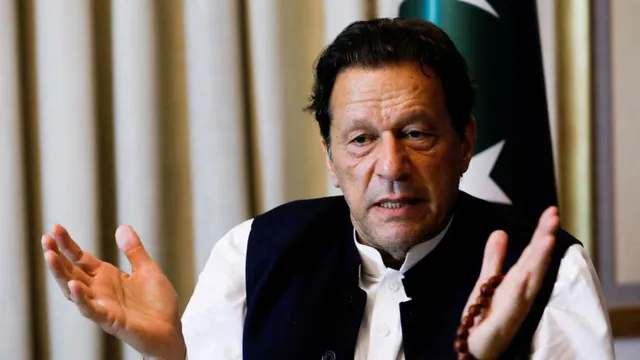- By Supratik Das
- Tue, 27 May 2025 11:38 AM (IST)
- Source:JND
Former Pakistan Prime Minister Imran Khan has made a scathing attack on Rawalpindi's military establishment, accusing it of destroying democratic institutions and hijacking Pakistan's political system. Addressing through his sister Aleema Khan outside Adiala Jail, the imprisoned PTI chief averred he is willing to spend the remainder of his life behind bars but will never make concessions to what he referred to as "extortionists and dictators. Aleema Khan again asserted that her brother will never make a compromise with the army or any foreign entity, brushing all such reports aside as mere propaganda to demoralize the Pakistan Tehreek-e-Insaf (PTI) movement.
Imran Khan opined that Pakistan is currently operating under a “jungle law,” where the powerful evade justice and manipulate the system. He blamed the military for influencing the judicial processes through measures such as the 26th Constitutional Amendment, and alleged that the judiciary is being coerced into holding up cases related to PTI. “The judges are under threat. PTI is standing with the judiciary to show that we are not backing down in the fight for justice,” said Aleema, conveying her brother’s words.
Even in prison, the ex-prime minister is all set to initiate a new national movement for justice and new elections. Aleema Khan said that though Imran does not wish to call supporters to Islamabad, fearing a violent crackdown would be repeated, he will soon declare a nationwide agitation. “He does not want people to be harmed again. We remember the bloodshed from earlier protests,” she said, referring to past incidents where PTI supporters were allegedly killed during clashes with security forces.
Ceasefire Violation Rekindles Focus On Military's Supremacy
Khan's comments have come at a moment when Pakistan's army is back in the spotlight of controversy, this time after the terror attack in Pahalgam, India, that claimed 26 civilian lives. As a retaliatory move, India initiated Operation Sindoor, targeting terror training camps in Pakistan and PoK, bringing international scrutiny to Pakistan's domestic power structure. A growing rift is prevalent between the civilian government and the military, especially regarding ceasefire agreements with India. While Prime Minister Shehbaz Sharif allegedly favored upholding peace, and the Army proceeded with violations, it reflects either a grave communications breakdown or a willful override by the military of civilian decisions.
The current political instability is nothing new in Pakistan's history. Since its creation in 1947, the nation has swung between military regimes and unstable civilian governments. Even during democratic upheavals, the Army has held on to matters of foreign affairs, defense policy, media, and court appointments. Not a single prime minister in the history of Pakistan has ever served a complete five-year term—many of them have been sent into exile, jail, or removed. The military has been repeatedly accused of election rigging, tampering with courts, and supporting or keeping out political parties as per its interests. The recent ceasefire violation and Imran Khan's arrest are stark reminders that Pakistan's democracy still functions in the shadow of its military.

